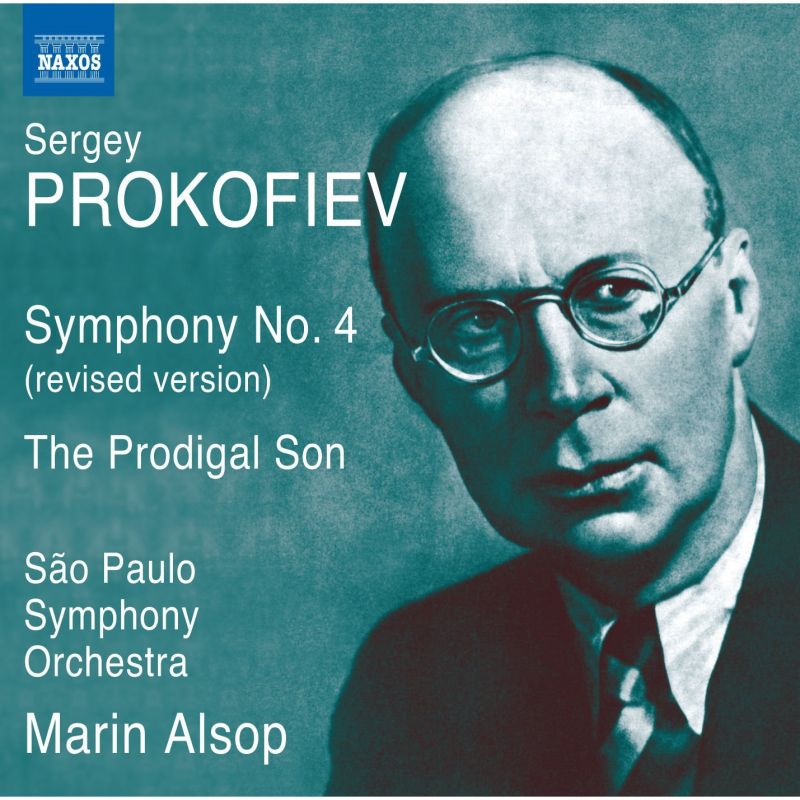PROKOFIEV Symphony No 4. The Prodigal Son
Second disc in Alsop’s São Paulo Prokofiev cycle
View record and artist detailsRecord and Artist Details
Composer or Director: Sergey Prokofiev
Genre:
Orchestral
Label: Naxos
Magazine Review Date: 11/2013
Media Format: CD or Download
Media Runtime: 78
Mastering:
DDD
Catalogue Number: 8 573186

Tracks:
| Composition | Artist Credit |
|---|---|
| Symphony No. 4 |
Sergey Prokofiev, Composer
Marin Alsop, Conductor São Paulo Symphony Orchestra Sergey Prokofiev, Composer |
| (The) Prodigal Son |
Sergey Prokofiev, Composer
Marin Alsop, Conductor São Paulo Symphony Orchestra Sergey Prokofiev, Composer |
Author: David Gutman
The present coupling is a notably intelligent one. The ballet The Prodigal Son came first in 1929, an early example of George Balanchine’s masterly choreography (not that the composer understood it). We now know from his diaries that Prokofiev saw symphonic potential in the material even before Serge Koussevitzky requested something new for the Boston Symphony Orchestra’s 50th anniversary. However, Prokofiev’s modest, four-movement Op 47 met with scant acclaim, its transitions abrupt, its terse developments exhibiting little of the transforming tension traditionally associated with the symphonic genre. What Prokofiev did in 1947 to create his Op 112 was to jump through a further series of conceptual hoops which transformed his neo-classical piece into a socialist realist epic. Commentators remain divided as to the merits of these scores, frequently letting political posturing cloud musical judgement.
Alsop’s carefully prepared, string-dominated textures may initially disappoint but she makes the revision sound subtler, less brash and disjointed than usual in this slow-burn interpretation. Remarkably, it is a score she conducted from memory in recent concert appearances with her other orchestra in Baltimore. I did wonder whether she meant some of the woodwind detail to be quite so reticent at the Sala São Paulo. The flute allocated the glorious lyrical theme of the slow movement, itself borrowed from the closing scene of the ballet, seems unnaturally recessed on its first appearance. Still, if you usually find the composer too raw, Alsop’s integrated, lyrical view of these works could be just the ticket. Only the booklet-notes are disappointingly basic, given the ampler information which accompanies the label’s Shostakovich series.
Discover the world's largest classical music catalogue with Presto Music.

Gramophone Digital Club
- Digital Edition
- Digital Archive
- Reviews Database
- Full website access
From £8.75 / month
Subscribe
Gramophone Full Club
- Print Edition
- Digital Edition
- Digital Archive
- Reviews Database
- Full website access
From £11.00 / month
Subscribe
If you are a library, university or other organisation that would be interested in an institutional subscription to Gramophone please click here for further information.




